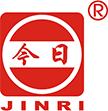What Are the Differences Between D Ring and O Ring Binders?
When organizing documents, presentations, or reports, choosing the right binder style makes a significant difference in efficiency and document preservation. Two of the most common types are D Ring Binders and O ring binders. Although both serve the same purpose—to hold punched paper securely—their structure, capacity, and usability vary in meaningful ways.
Structure and Shape
The most apparent difference between D ring and O ring binders lies in the shape of their rings.
O ring binders use circular rings that form a complete “O” shape. The rings are typically attached to the spine or the back cover, creating a symmetrical binding method.
D ring binders, on the other hand, have one flat edge and a curved back, forming a “D” shape. The flat side allows papers to sit more evenly, reducing the bulk near the spine. This design makes page turning smoother and helps documents lie flatter on a surface.
Because of this structural difference, D ring binders are often preferred for high-volume filing, while O ring binders are suitable for lighter, everyday document storage.
Capacity and Paper Alignment
Capacity is one of the main performance distinctions. A D ring binder can typically hold 20% to 30% more pages than an O ring binder of the same spine width. The reason lies in the flat side of the D ring, which creates extra usable space and keeps pages perfectly aligned without excessive curvature. This makes D ring binders ideal for storing dense reports, technical manuals, or training documents.
In contrast, O ring binders hold fewer sheets, but their rounded design provides better flexibility for small to medium-sized files. They are perfect for note collections, project briefs, or short reference materials where bulk storage is not a priority.
| Binder Type | Ring Shape | Typical Capacity (for 1.5” spine) | Best For |
|---|---|---|---|
| O Ring Binder | Circular | 275–300 sheets | Everyday filing, small projects |
| D Ring Binder | Flat-sided “D” | 350–400 sheets | Large manuals, presentations, reports |
Durability and Page Handling
When it comes to durability, D ring binders often outperform their O ring counterparts. The alignment of the rings and the added leverage from the flat design reduce stress on the punched holes, minimizing tearing over time. This makes them more suitable for documents that are frequently referenced or flipped through.
O ring binders, however, are more compact and lightweight. Their design is less rigid, which can be beneficial for users who need flexibility and portability rather than maximum durability. The smooth curvature of O rings also allows quick insertion and removal of pages without snagging.
Ease of Use and Professional Appearance
For presentations or professional use, D ring binders often provide a cleaner, more organized appearance. Pages rest flat, making it easier to read or photocopy without distortion near the binding edge. Many D ring designs also feature non-stick clear overlays for customizable covers, adding to their visual appeal in corporate settings.
Meanwhile, O ring binders are user-friendly for everyday office or school environments. Their compact design makes them easier to store on shelves, stack in drawers, or carry in bags. For short-term projects or casual organization, they are practical and cost-efficient.
Choosing the Right Binder for Your Needs
The decision between D ring and O ring binders depends on the balance between capacity, usability, and purpose:
Choose a D ring binder if you handle thick stacks of paper, reference materials, or need long-term durability.
Choose an O ring binder if you value portability, lighter weight, and simple organization.
Both options can be found in various materials—such as polypropylene, vinyl, or leatherette—and come in different ring diameters, spine widths, and color options to suit different environments.
Premium Binder Solutions from JINRI
For businesses and schools seeking reliable binder systems, JINRI Stationery offers a wide range of high-quality D ring and O ring binders crafted with precision and durability. JINRI’s binders are designed for smooth page turning, secure locking mechanisms, and long-term document protection—ideal for both office professionals and students. Whether you need standard A4, letter-size, or custom ring configurations, JINRI provides OEM and ODM solutions tailored to your needs.
Both D ring and O ring binders play essential roles in document management. By understanding their distinctions in design, capacity, and application, users can select the right type to enhance organization efficiency and maintain a professional appearance across every project.



